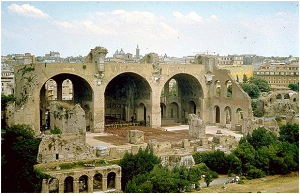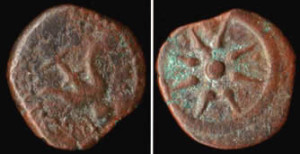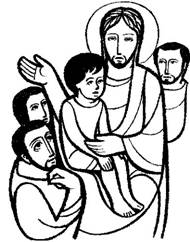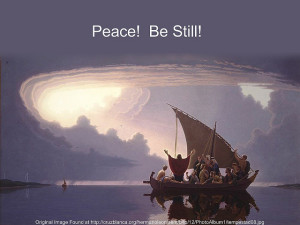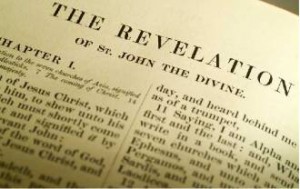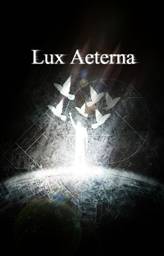Preached on January 10, 2016
All four gospels begin their stories of Jesus’ adult ministry with his baptism.
In today’s reading from Luke’s gospel, this is what happened after Jesus was baptized:
When Jesus also had been baptized and was praying, the heaven was opened, and the Holy Spirit descended upon him in bodily form like a dove. Luke 3:21-22
Today, for a variety of reasons, parents usually bring babies and small children to the baptismal font (almost all of us here were baptized when we were too young to remember).
For too many centuries, Christians were taught that baptism was necessary to save them for eternal life. That was why parents brought their babies to the font – to make sure their beloved children would always be included in God’s saving love.
But that is not how baptism was understood in Jesus’ time, or in the first centuries afterward. Instead, baptism was seen as the step into Jesus’ ministry, through the power of Jesus’ Spirit.
Note that there are no babies in today’s lessons – they are all adults, committing themselves to Jesus’ service after life-changing experiences. So what were those experiences?
I think the best way to illustrate that – quite literally – is to step into a picture.
Imagine you are living in the Roman city of Ravenna, six centuries after Jesus. There are now many Christians in your city – maybe even in your own family – and sometime in the recent past, you’ve had experiences that have led you to believe in Jesus, too.
What might those experiences have been? You may have seen Christians coming to their neighbors with prayers for healing…. You may have received food from Christians in times of famine…. You may have heard Christians singing with great joy in their worship… You may have seen Christians in times of crisis and danger, facing their challenges with courage and hope…
So you have been attending the church’s worship services, and you have been learning about Jesus from the church’s teachers. (You probably never learned to read, but there are other ways to learn spiritual truths.) And now you are ready for your baptism.
Imagine that you have come to a small round building, a building you’ve seen many times. It’s not a particularly beautiful building, just a simple two-story octagon faced with ordinary brick. You’ve never been in the building, but you know this is the baptistry – the building next to the church were all baptisms now take place.
So now you walk through the door – and in the center of the room ahead of you there is a shallow pool, right under the building’s dome.
Candles are being lit throughout the building, and their light glitters on the colored mosaics all over the walls and ceiling.
This is no longer the humble brick building you’ve seen from the outside. It represents another world. It’s not heaven yet – but it’s heaven on earth, which is where Jesus sought to bring heaven’s love.
Now imagine stepping into that pool, your bare feet in the water, and looking up at the dome. There above you is a circle of colored mosaics, and at the very center of the circle is a young Jesus, being baptized by John. The water is being poured over him, and a dove hovers in the air above his head.
Underneath that mosaic of Jesus’ baptism, you are standing in the waters of your own baptism. You are following in Jesus’ footsteps.
But did Jesus come to his own baptism to be ‘saved’ for eternal life? Or was he asking for spiritual power for his ministry?
Look up at the dome again – there’s more to the picture. Now you see another circle around the central mosaic. That circle is filled with the first people who followed Jesus. One after another, they keep moving forward. You look more carefully at their faces, and you see they are all Jesus’ disciples. And you know you are following in their footsteps.
But did the first disciples come to their baptisms so they could be ‘saved’ for eternal life? Or – in their encounters with Jesus and his Spirit – were they given power for their ministry?
There’s a clue in the mosaic above you.

The power of the Spirit is poured upon Jesus
This mosaic tells us the meaning of baptism in powerful images.
The reading from Acts tells us in words –
When the apostles heard that Samaria had accepted the word of God, they sent Peter and John… who went down and prayed for them that they might receive the Holy Spirit (for as yet the Spirit had not come upon any of them; they had only been baptized in the name of the Lord Jesus). Then Peter and John laid their hands on them, and they received the Holy Spirit. (Acts 8:14-17)
Here the Samaritans – yes, those Samaritans! – receive the Holy Spirit after their baptisms. Did these Samaritans believe they were being ‘saved’ for eternal life? They had already followed Jesus and all of his disciples into the waters of baptism. They were already connected to Jesus and to his church, the company of his disciples. But now something more was happening to them– the Spirit was giving them power for ministry.
And now you – with Jesus and the disciples, and with all his other followers from Jerusalem to Samaria and now even to Italy – you are standing in the pool of baptism, and you are ready to step into the great circle of Jesus’ servants, every one of them empowered by the Holy Spirit for ministry.
You’re not just standing in that pool to be ‘saved’ for eternal life – you are asking for the Spirit’s power to serve God in this world, too.
The Holy Spirit gives us power for service
One of the greatest gifts of the American Book of Common Prayer is the way it has taught Episcopalians what baptism really means.
Yes, our faith tells us that baptism links us to Jesus throughout eternity – we are ‘saved’ for eternal life with God – but that’s not all it means.
In our baptisms, we were called to serve in Jesus’ Name, and we were given the power of the Spirit to do that. So in our baptisms we joined the great company of those who follow Jesus; throughout our Christian lives we’ve been walking along with them, one step at a time, always accompanied by the Spirit of Jesus.
So…. Let me highlight some of the baptismal promises we’re about to renew:
Will you proclaim by word and example the Good News of God in Christ?
How will you proclaim the Good News – what kind of example will you be?
Will you seek and serve Christ in all persons…?
How will you seek and serve Christ in all persons – even today’s Samaritans?
Will you love your neighbor as yourself?
How will you love your neighbors as yourself – even your most unlovable neighbors?
Will you strive for justice and peace, and respect the dignity of every human being?
How will you strive for justice and peace – even in a time when too many of this world’s leaders think war will bring peace?
Our answer is always the same: I will, with the Spirit’s help.

Procession of the Baptized (Sant’Apollinare Nuovo, Ravenna)
A homily preached at St. Benedict’s Episcopal Church, Los Osos
January 10: The Baptism of Jesus

